Five Parrots Were Separated for Swearing at Visitors and Laughing Together at a Wildlife Sanctuary
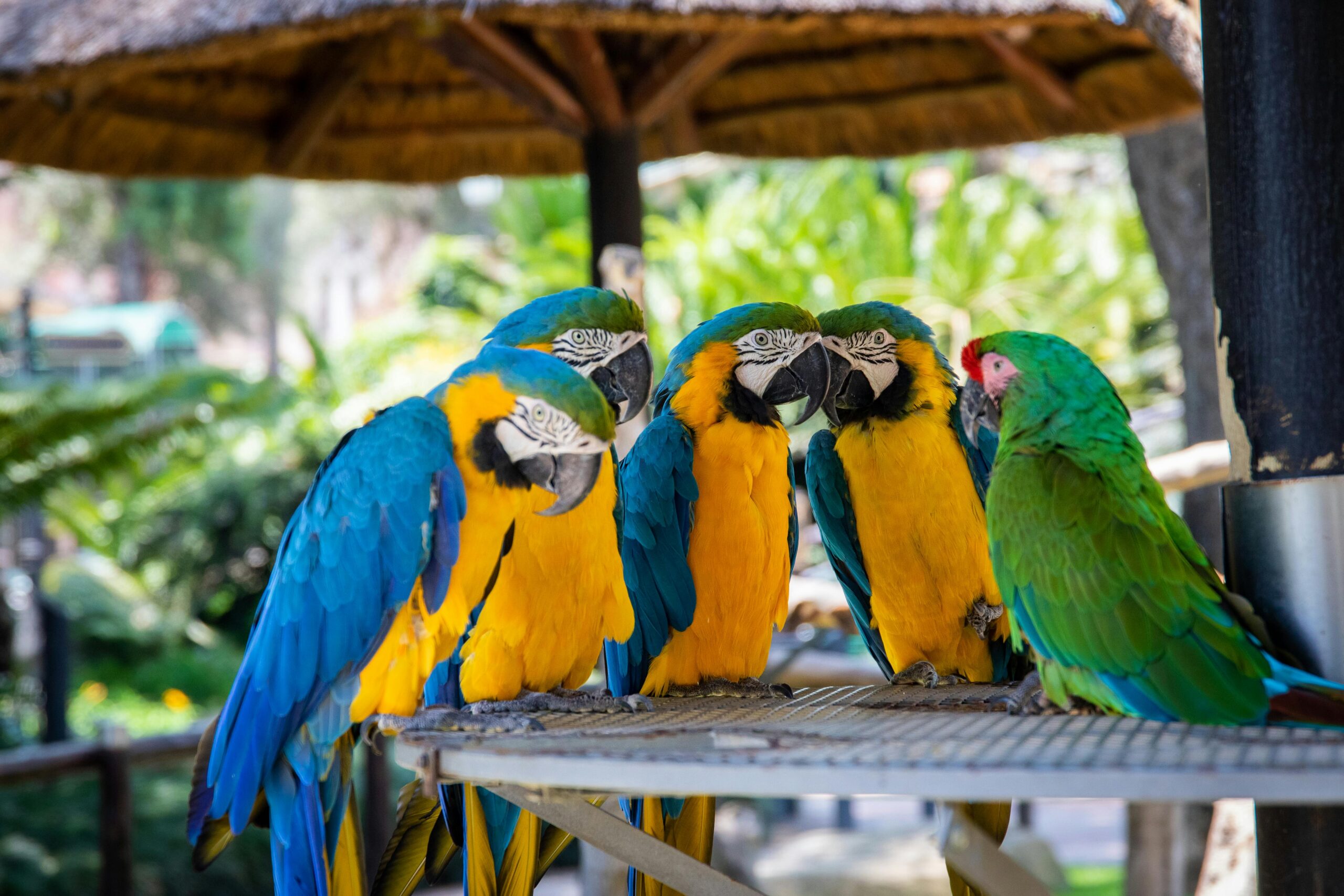
Imagine walking through a peaceful wildlife sanctuary, the kind of place where the only sounds are rustling leaves, chirping birds, and the occasional splash from a pond. Then, suddenly “F** off!”* you hear it. Not from a rowdy tourist, but from a parrot. And not just one, but five of them, squawking profanity and cackling like mischievous teenagers at a sleepover.
It sounds like a scene from a sitcom, but it was real life at the Lincolnshire Wildlife Centre in England. A group of African grey parrots – Billy, Eric, Tyson, Jade, and Elsie became an accidental comedy troupe, shocking and delighting visitors with their crude language. Their foul-mouthed chorus didn’t develop in isolation. These birds egged each other on, finding joy in the laughter they triggered, creating a loop of swearing and shared amusement.
But underneath the headlines and the hilarity lies something deeper. What happens when behavior good or bad becomes contagious? Why do we, like those parrots, sometimes repeat what shocks or entertains simply because it gets a reaction?
As the parrots were separated to break the cycle, they left behind more than viral fame. They left a mirror, and a question: In a world that thrives on echoes, what are we reinforcing with our voices, our laughter, our attention?
When Parrots Go Viral
They were just five birds. Not rebels, not troublemakers just newly arrived African grey parrots adjusting to life at the Lincolnshire Wildlife Centre. But within days of their quarantine, Billy, Eric, Tyson, Jade, and Elsie weren’t just ruffling feathers they were dropping bombs. F-bombs, to be exact.
The staff noticed something unusual almost immediately: these parrots weren’t just mimicking curse words they were performing them. One would let loose an expletive, another would laugh, and the rest would follow like a feathered comedy improv group. Guests walking by were met with cheeky insults like “fat tt” or blunt directives to “f* off,” delivered with perfect timing and uncanny clarity. For many, it was hilarious. “It brought a big smile to a really hard year,” said the sanctuary’s chief executive, Steve Nichols.
Five African grey parrots have had to be removed from display at a Lincolnshire Wildlife Park for swearing at visitors and then laughing with each other. pic.twitter.com/e2PuFPlkn6
— Quite Interesting (@qikipedia) October 13, 2020
African greys are no strangers to mimicry they’re among the most intelligent and vocal parrot species on the planet. But this group had something different: a shared enthusiasm for swearing, a feedback loop that turned laughter into fuel. Their shared enclosure became a kind of echo chamber, each parrot reinforcing the other’s behavior, triggering more giggles and, in turn, more profanity.
The public was amused. Some even gave back what they got, exchanging profanities in a bizarre, bird-led banter. But as more families with young children began visiting, what started as comic relief raised a red flag. Nichols and the staff made a tough call: the parrots had to be separated. Not because they were bad but because they were too good at what they were doing.
The Science of Mimicry and Reaction
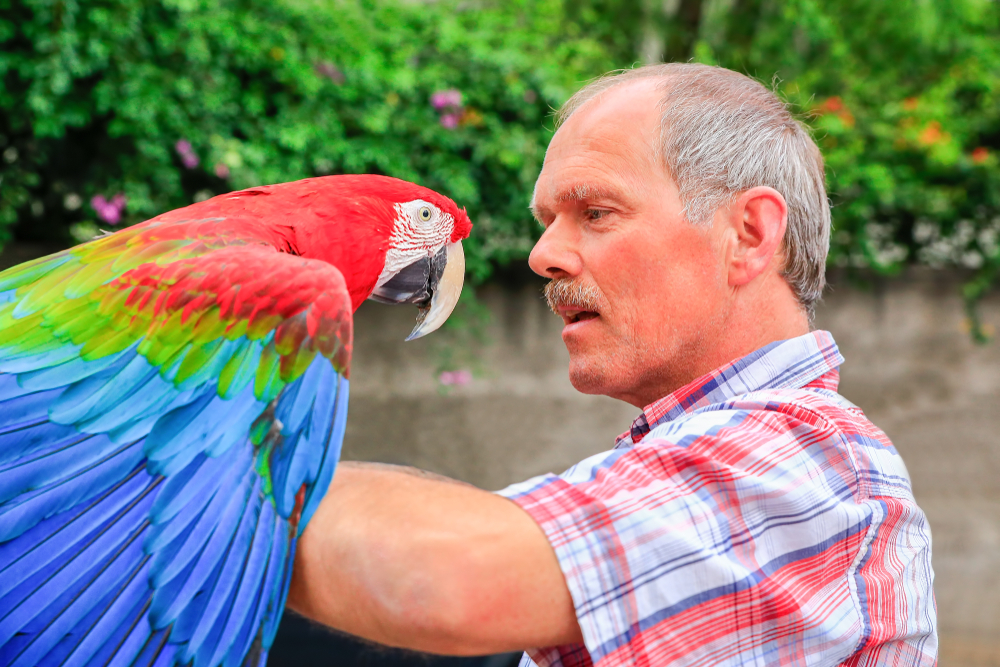
Swearing parrots might sound like a novelty act, but the behavior is grounded in real science. African grey parrots, like the infamous five from Lincolnshire, are among the most intelligent and vocal bird species in the animal kingdom. They don’t just repeat sounds—they listen, interpret, and respond. And like humans, they learn what gets a reaction.
In the wild, parrots mimic each other to strengthen social bonds. In captivity, especially as pets, their social mirror becomes us humans. TVs, radios, phone calls, and everyday conversations become the soundtrack of their environment. And when that environment includes emotional or high-reaction phrases like curse words, those are the ones that stick. Why? Because parrots, like people, are drawn to emotional energy. The more intense the reaction, the more likely the behavior is to be repeated.
As Steve Nichols, the wildlife centre’s CEO, pointed out, these birds swear “to trigger a reaction.” It’s not malicious. It’s reinforcement learning. If a parrot says something shocking and gets laughter, surprise, or attention, it makes a mental note: this works. Do it again. Then another bird hears it, joins in, and now there’s a pattern.
This is called social reinforcement, and it’s not just a parrot thing it’s a human thing. Children repeat curse words not because they understand them, but because of the reaction they provoke. Viral content spreads on social media for the same reason: it stirs emotion whether shock, amusement, or outrage. The parrots weren’t swearing for the sake of it. They were participating in a social loop as old as communication itself: say what gets noticed.
What’s remarkable and maybe a little sobering is how quickly these birds influenced each other. None of the five came from the same home. They met in quarantine. But within days, they weren’t just repeating learned words they were feeding off one another. One curse. One laugh. One reaction. And suddenly, a feedback loop stronger than any formal training was born.
How Environment Shapes Us
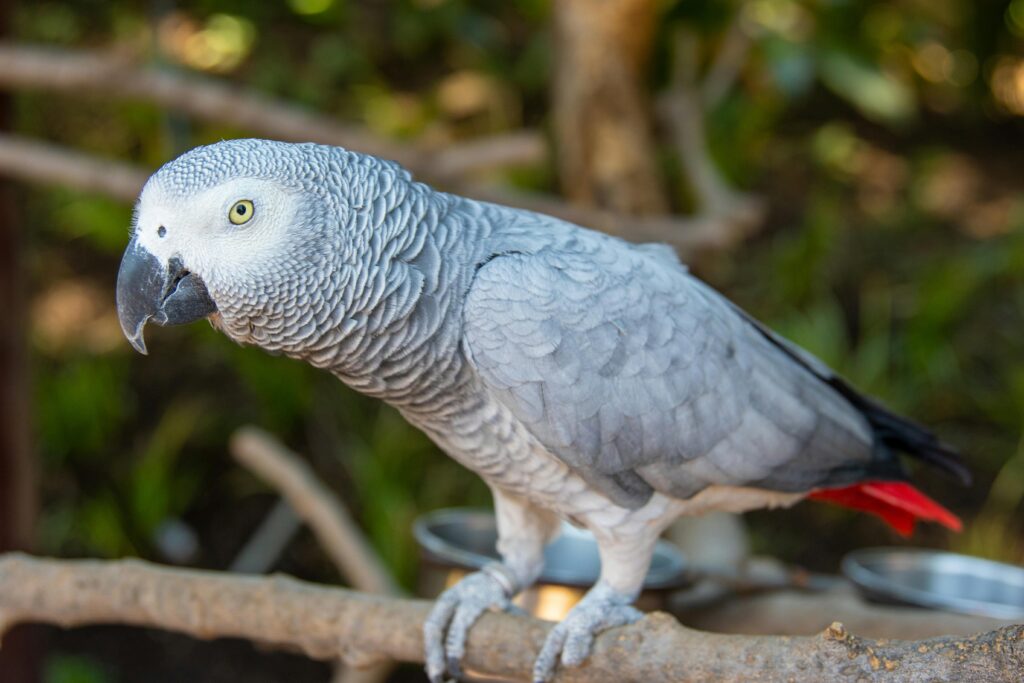
The swearing parrots didn’t just learn from humans they learned from each other. One curse turned into a chorus. One laugh triggered another. Their behavior wasn’t isolated; it was infectious. And while that may sound like a quirky trait of intelligent birds, it’s a reflection of something far more universal: we all absorb the energy we’re surrounded by.
At the sanctuary, the staff hoped that mixing the parrots with older, calmer birds would mellow their language. But the opposite happened. The seasoned residents began picking up the new vocabulary, and soon the zoo had eight full-time “swearers.” It became clear: behaviors, like emotions, can spread. Not because they’re logical but because they’re contagious.
Psychologists call this emotional and behavioral contagion. It’s why laughter spreads in a room even when the joke wasn’t that funny. It’s why one person’s outrage online turns into a mob. It’s why negativity in a workplace or family can darken the whole atmosphere. We’re social creatures wired to mirror, to adapt, to echo the energy around us whether we realize it or not.
In that sense, the parrots aren’t just birds with bad language. They’re a metaphor. They remind us how easily influence travels not always through direct instruction, but through repetition, tone, and reaction. And like the parrots, we rarely question the things we pick up. The phrases we repeat. The jokes we laugh at. The moods we carry home from someone else’s storm.
From Zoo Staff to Social Circles
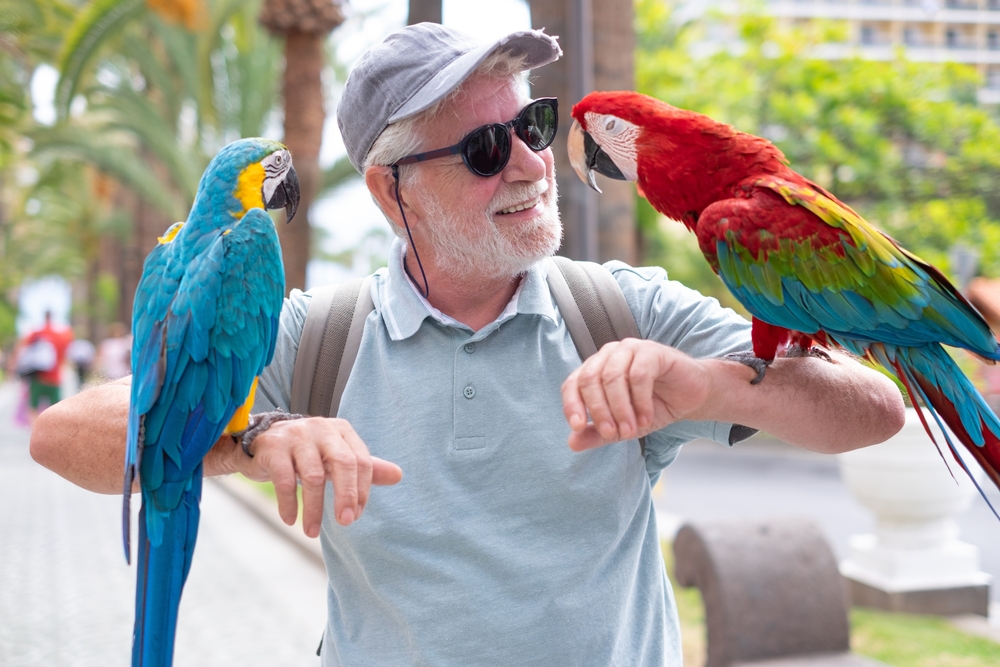
When the Lincolnshire Wildlife Centre made the decision to separate the five parrots, it wasn’t because they were doing harm in the traditional sense. No one was injured. There were no formal complaints. In fact, most visitors found the foul-mouthed birds hilarious. But still, the staff stepped in not to punish, but to prevent a ripple effect. Not just for the sake of decorum, but for the integrity of the environment they were responsible for.
That’s what real influence looks like.
It’s easy to laugh off the antics of a few misbehaving birds. It’s harder but far more meaningful to ask: What am I encouraging with my silence? With my laughter? With my attention? Influence doesn’t always look like leadership. Sometimes it looks like participation. Or inaction. Or turning a blind eye while something harmful gets normalized because “it’s funny” or “that’s just how it is.”
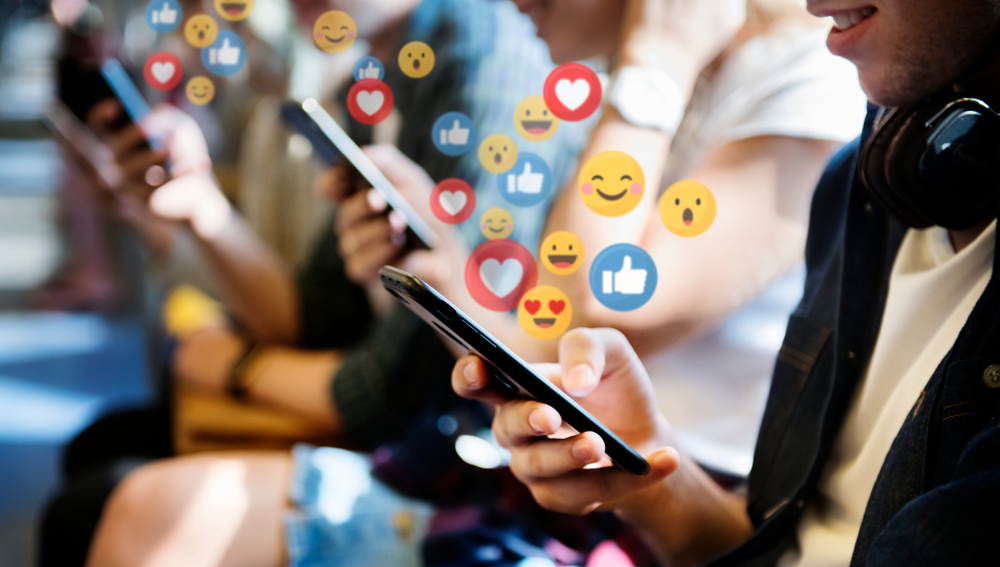
In the parrots’ case, their swearing wasn’t rooted in malice. They were reflecting back what they’d absorbed. But the keepers understood that unchecked behavior especially in a public, family-centered space carries consequences beyond the moment. The longer the parrots stayed together, the more likely they were to corrupt the rest of the flock. And if left alone? Nichols put it plainly: “If they teach the others bad language and I end up with 250 swearing birds, I don’t know what we’ll do.”
In human terms, that’s how toxic cultures grow. One unchecked voice becomes five. Five becomes fifty. Before long, cynicism, gossip, or even hate becomes background noise we stop noticing. Until it’s everywhere.
The decision to intervene wasn’t about censorship it was about stewardship. The zoo staff knew they were shaping more than just a visitor experience. They were shaping a culture, a tone, an environment where not everything that gets a laugh is left to thrive.
And we carry that same responsibility.
Whether you’re a parent, a teacher, a friend, or simply a voice in a group chat, your influence matters. What you allow, what you reinforce, even passively has reach. It teaches others what’s acceptable. What’s rewarded. What’s worth repeating.
The Power of the Voices We Keep
It’s tempting to leave the story of the five swearing parrots as nothing more than comic relief a viral moment, a quirky headline, a harmless laugh. But when the feathers settle, their behavior reveals something quietly profound: we’re all mirrors of the energy around us. What we echo, we amplify. What we laugh at, we legitimize. What we tolerate, we teach.
The parrots didn’t invent their profanity. They inherited it. They reinforced it. They shared it until it became part of their group identity. Sound familiar?
In our own lives, the language we use, the content we consume, the circles we keep it’s all shaping us, word by word. Influence isn’t always loud. Sometimes it’s subtle. Sometimes it’s disguised as entertainment. But the effect is real. Over time, we become fluent in the vocabulary of the voices we keep close—whether that’s sarcasm, cynicism, or something softer, more intentional, more healing.
Maybe that’s what these birds, unintentionally, have given us: a reminder to choose our echoes wisely. To ask not just what we’re repeating but why. To stop and consider whether the things we’re feeding with our attention are feeding us back in a meaningful way.
Because whether it’s a parrot swearing or a person speaking, every word is more than sound. It’s a seed. And it grows—into a culture, a climate, a way of being.
So next time someone or somethingtries to get a laugh out of you, ask yourself: Is this just noise, or is this nourishment?
Loading...

